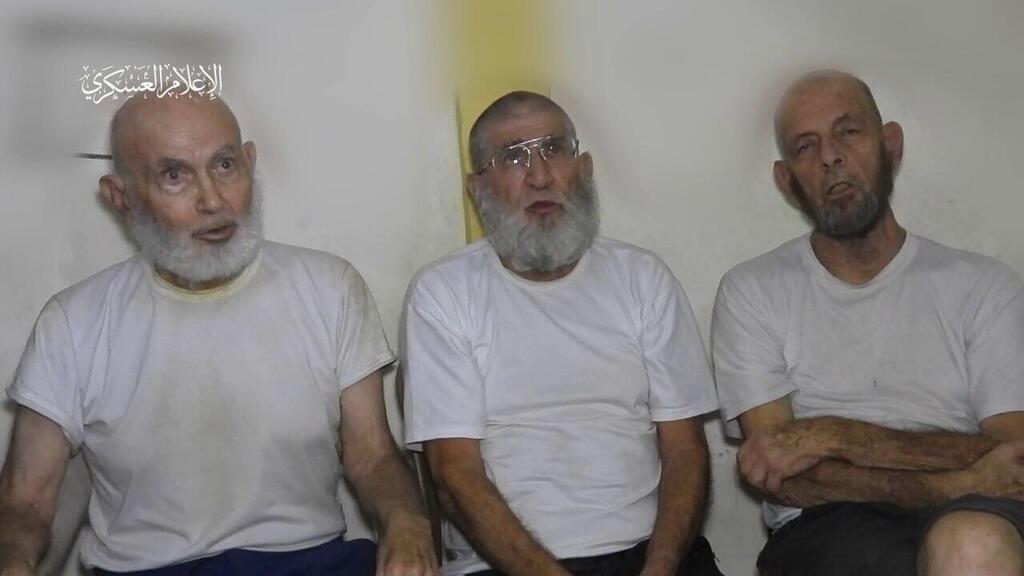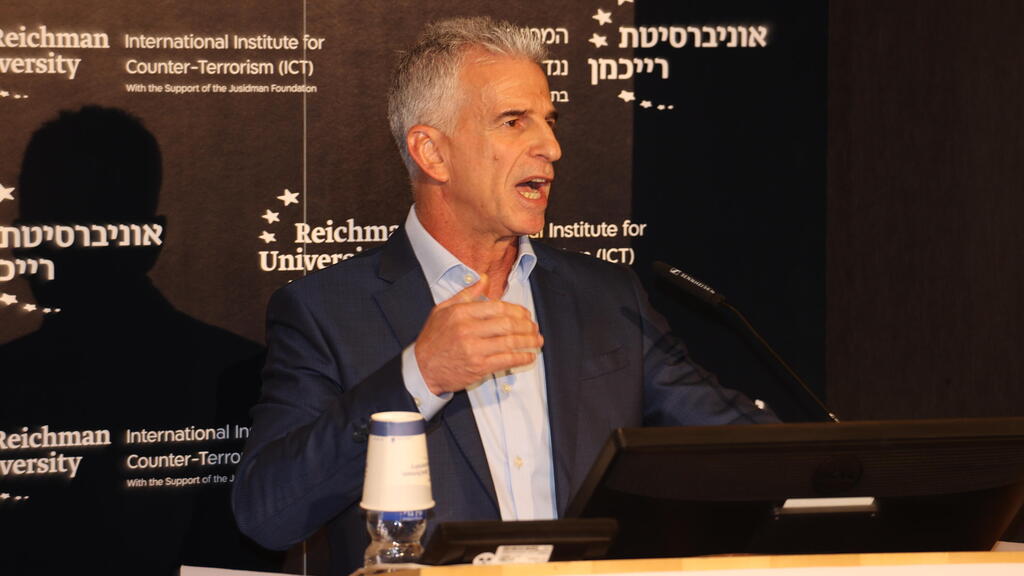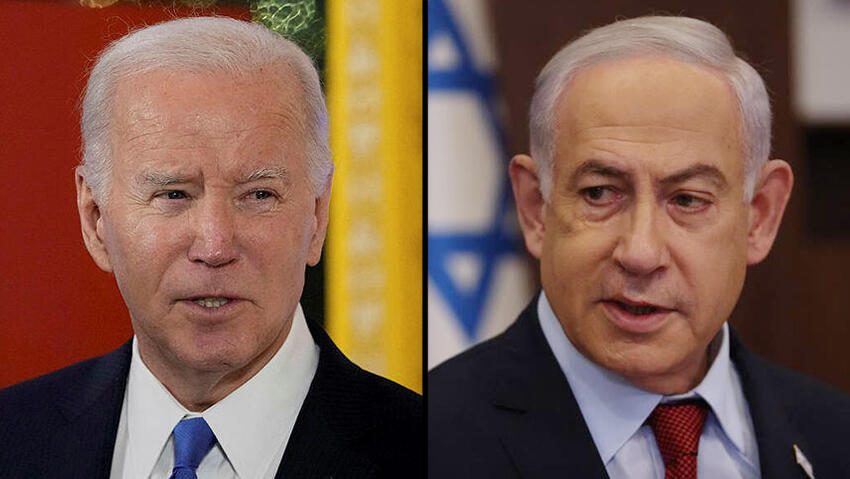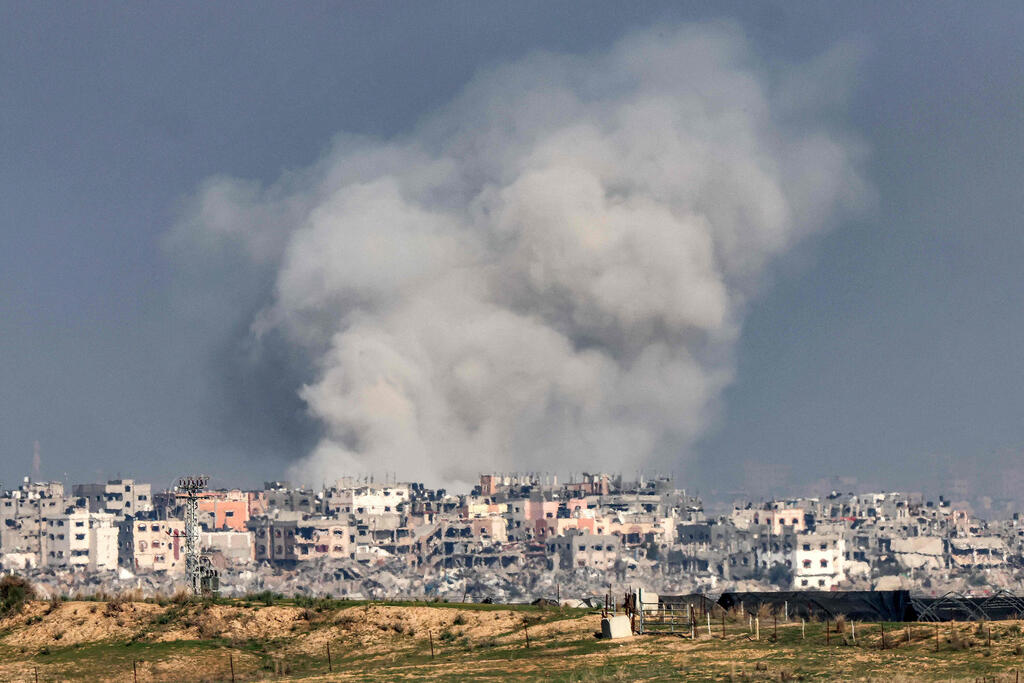Getting your Trinity Audio player ready...
Hamas released a video on Monday showing three elderly Israeli captives Chaim Peri, Yoram Metzger, and Amiram Cooper. Alongside this important sign of life, their families’ concerns about their condition have grown. Israel is aware Hamas values the price for male captives higher than that of women and children, and is considering whether to negotiate the release of more high level Palestinian prisoners compared to the previous release deal.
More stories:
However, the Israeli decision to renew negotiations for the release of captives involves risks, including potential influence on the IDF’s ground operation in Gaza. Prime Minister Benjamin Netanyahu and Defense Minister Yoav Gallant said that military pressure is the only thing that can pressure Hamas, while the terror organization claims there will be no negotiation as long as the fighting continues. Yet, it now appears that moves to advance a potential deal are being made.
Israel was also motivated to pursue a deal, in light of the tragic incident that took place last week, after three Israeli captives were accidentally killed by IDF soldiers in Gaza. This decision was influenced by the significant number of hostages who were killed in captivity, with some of their bodies having been recovered by the military.
Therefore, the government decided to send Mossad chief David Barnea to meet with the head of the CIA and the Qatari prime minister in Warsaw, with three guiding principles: Firstly, any negotiation with Hamas will take place while the operation in the Strip continues, and there will pauses without the releasing of captives; secondly, the negotiation will resume at the point where it stopped – meaning no Israel wants to release the remaining women still in captivity; and thirdly, Israel insists that the release will be according to clear categories.
Israel's intention is, even in light of the video released Monday, to release elderly captives together with the women and those suffering from medical conditions. Israel insists on a deal for the release of live hostages only.
An Israeli official said on Monday following the video’s release that "the coming days will be decisive and characterized by various pressures. The ball is not in Israel's court now. The Mossad chief took the first step, and now the pressures will pass from the U.S. to Qatar and from Qatar to Hamas. It will take a few days."
Regarding Israel's willingness to release "high-profile" prisoners, including convicted terrorists, in exchange for the release of new categories of Israeli captives, the official said that this is a possibility.
Israel also recognizes the American determination to bring about another captive deal. The head of the CIA is delving deep into the matter under the personal guidance of U.S. President Joe Biden, and is determined to achieve results.
However, Israel also understands that the deal will take more time to be signed because Hamas's goal in the Gaza Strip is to achieve long periods of cease-fire, and Israel is not willing to grant that, opting for the agreement that the release of captives will mean one day of pause.
It seems likely that Israel will escalate the military pressure on Hamas in the coming days, out of recognition that only such pressure will bring Hamas to engage in another negotiation for a release deal.
"There is a strong will to achieve a deal on the American side, and of course on the Israeli side, but not at any cost," an Israeli official said Monday. "If Hamas issues an ultimatum for the withdrawal of all our forces, that isn’t something we can consider. If Hamas sees the reality in Gaza and agrees to a plan similar to the previous one, a deal can be reached. At the moment, an agreement is less likely to take place.”
“The prime minister said that military pressure and the operation in Gaza were significant factors in reaching a deal, alongside the Americans – but even now, military pressure will lead to a deal,” the official added. “The negotiation is only at its early stages; we’re working on it at the moment. It won't happen immediately."
In light of this, estimations in Israel say Hamas’ release of the video isn’t accidental, and its timing is related to these developments and Hamas's attempts to kickstart the negotiations. The fact that the terror organization chose to present three elderly hostages also indicates its willingness to expand its categories in a future deal.
In fact, even before the previous deal’s collapse, Hamas offered to release elderly captives, and Israel refused. This indicates the complexity of the negotiations and sharpens the Israeli dilemma of insisting on the release of all female captives.
"It’s clear Hamas’ price will be heavier this time because the deal involves men," Israeli officials said Monday. "They’ll demand the release of Palestinian prisoners convicted of murder."







